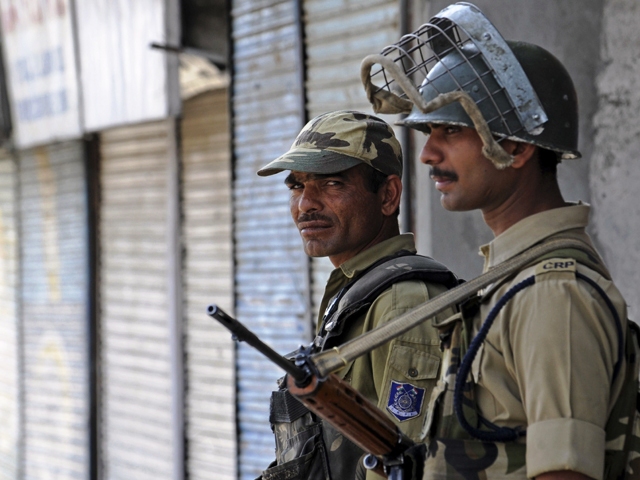
This was discussed during an interactive session hosted by the Center for Global and Strategic Studies (CGSS) in Islamabad with a delegation from the United Kingdom Royal College of Defence Studies (RCDS). The RCDS delegation included senior students from 10 countries.
During the session, participants discussed the Kashmir issue and possible solutions. They deliberated that the political leadership in Kashmir had become irrelevant after the youth set up their own localised leadership. They added that a resolution to the Kashmir issue was not possible without the intervention of international powers as bilateral solutions have never materialised.
Further, they said that this issue had now become a global problem. The participants discussed the atrocities of India in Kashmir and requested the international community to urge a feasible solution for the sake of Kashmiris and their 70 years of suffering.
Pakistan-India deadlock: Foreign policy wizards expect regional peace to suffer
The participants also discussed that democracy as a system of governance was now being questioned for not delivering effectively and that the sole superpower in the world was now losing its clout.
The session then discussed the prospects of the China-Pakistan Economic Corridor (CPEC) and how the next 100 years will be shaped by economic gains. The discussion comprised of the economic side of the Belt and Road Initiative (BRI) and CPEC, the significance of the Gwadar port, universal trade, economy, GDP and revenues.
Furthermore, the future of South Asia was also discussed including the security and stability of the region.
They deliberated the different factors which impact the Indo-Pak subcontinent, including the fast-developing Indo-US nexus, events in Afghanistan, stagnation of a dialogue between the Taliban and authorities and the Chinese BRI.
Extremism is now shifting towards India in the form of Hindutva, thus, with a possibility of larger turmoil, participants discussed.
The discussion also focused on the Shanghai Cooperation Organization (SCO) which was not an alliance as per the Chinese vision but was established to resolve disputes in the region. During the session, participants also discussed the inter-dependence of the political and military systems of Pakistan, and what challenges this may pose for Pakistan in the times to come.
The solution to Kashmir lies in Beijing
Asia, they said, was recognised as the biggest strategic beneficiary for the economic benefits. The participants further discussed that Pakistan needs to invest in other aspects of development such as education, to match the pace of other developing nations of the region such as China.
Earlier, Major-General (retd) John Craig Lawrence of RCDS — who was heading the delegation — signaled his willingness to work in collaboration with CGSS to learn about the future economic prospects, the security policy and the stability of Pakistan.
Published in The Express Tribune, May 8th, 2019.


1729662874-0/One-Direction-(1)1729662874-0-165x106.webp)


1726722687-0/Express-Tribune-Web-(9)1726722687-0-270x192.webp)


1732011525-0/Express-Tribune-(8)1732011525-0-270x192.webp)








COMMENTS
Comments are moderated and generally will be posted if they are on-topic and not abusive.
For more information, please see our Comments FAQ